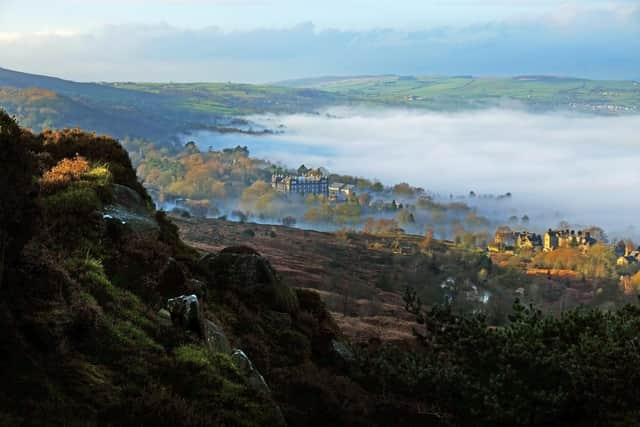Business review of 2022: Why the Yorkshire spa town of Ilkley was voted best place to live in Britain
In May, the chairman of Leeds-based Asda warned that customers were buying fewer items and turning to cheaper products after witnessing a plunge in their household incomes.
Lord Stuart Rose said that the supermarket group’s shoppers were “making desperate decisions about spending” as the cost-of-living crisis continued to bite. Lord Rose, a former chief executive at Marks & Spencer, said some customers are “saying they can only spend £40 in a shop and will put anything back if it comes over that”.
Advertisement
Hide AdAdvertisement
Hide AdHe added that product availability in some areas has been “patchy” as the company continued to tackle supply chain disruption related to the invasion of Ukraine and coronavirus restrictions in some regions.


Deal activity, however, showed no signs of slowing down. In April, the FTSE-250 hard landscaping specialist, Marshalls, revealed it had successfully raised £187m from investors for its proposed £535m acquisition of Marley Group plc. Marley was described as the “Marshalls of roofing”, because it had become a leader in the manufacture and supply of pitched roof systems to the Great Britain construction market.
Marshalls said the move would accelerate its strategy to become the UK’s leading manufacturer of products for the built environment
Elsewhere, the Government announced controversial plans for asylum seekers who crossed the Channel in small boats to be flown for processing to Rwanda.
Advertisement
Hide AdAdvertisement
Hide AdBritain’s consumers were also rocked by the biggest jump in domestic energy bills in living memory as Prime Minister Boris Johnson faced a backlash after the Conservative party suffered a string of losses in the local elections. As police issued more partygate fines, Sue Gray’s full report into the controversy was published, leading to calls for the then-prime minister to quit.
The following month saw the Queen’s Platinum Jubilee celebrations across an extended bank holiday weekend. Closing the four days of pomp, pageantry and partying, the Queen, who was absent for much of the celebrations, said she remained “committed to serving” the nation to “the best of my ability”.
The largest rail strike in a decade hit the UK as members of the Rail, Maritime and Transport union (RMT) walked out on three days in a week in a bitter dispute over pay, jobs and conditions which would rumble on for the rest of the year.
At the same time, steps were being taken in Yorkshire to nurture a new generation of female entrepreneurs.
Advertisement
Hide AdAdvertisement
Hide AdLaw firm Gordons revealed it had been chosen by funding connector Fund Her North, which is a group of more than 25 women in venture capital organisations who collectively have a combined investment power of £650m. It is believed to be the only organisation of its kind in the UK that brings together women in the investment industry in this way to support other female founders.
But the economic mood music remained grim. In June, the UK economic outlook report from KPMG warned that the UK was at “significant risk” of heading into a recession due to the mounting cost-of-living crisis and the Ukraine conflict.
Throughout the spring and early summer, global growth was hampered by the war in Ukraine and lockdowns in China.
Yael Selfin, chief economist at KPMG UK, said: “We expect growing external headwinds and weakening domestic momentum to see economic growth slow significantly over the next year, with a significant risk of a mild recession.”
Advertisement
Hide AdAdvertisement
Hide AdThe governor of the Bank of England warned that soaring inflation would hit Britain harder than any other major economy during the energy crisis.
Andrew Bailey said the UK’s economy would likely weaken earlier and be more intense than others as a result of the energy price shock that all European economies face.
The residents of Ilkley were, were however, finding reasons to be cheerful after the West Yorkshire spa town was named the best place to live in the UK by The Sunday Times. It’s a place which has attracted the likes of Charles Darwin, Madame Tussaud and Jimi Hendrix and seems the epitome of the perfect settlement.
Ilkley used to be known as the graveyard of ambition because the stunning quality of life dissuaded people from seeking career advancement in London.Today, with technology destroying regional barriers to growth, there is no reason why you can’t build a global business career while admiring views of Beamsley Beacon or the Cow and Calf. There has been an influx of dynamic small businesses. Determined locals have flexed their muscles to ensure they get a fair deal for transport and environmental services, while welcoming outsiders who have established an eclectic range of thriving independent businesses. During the sweltering summer, Ilkley provided a template of success for communities across Britain.